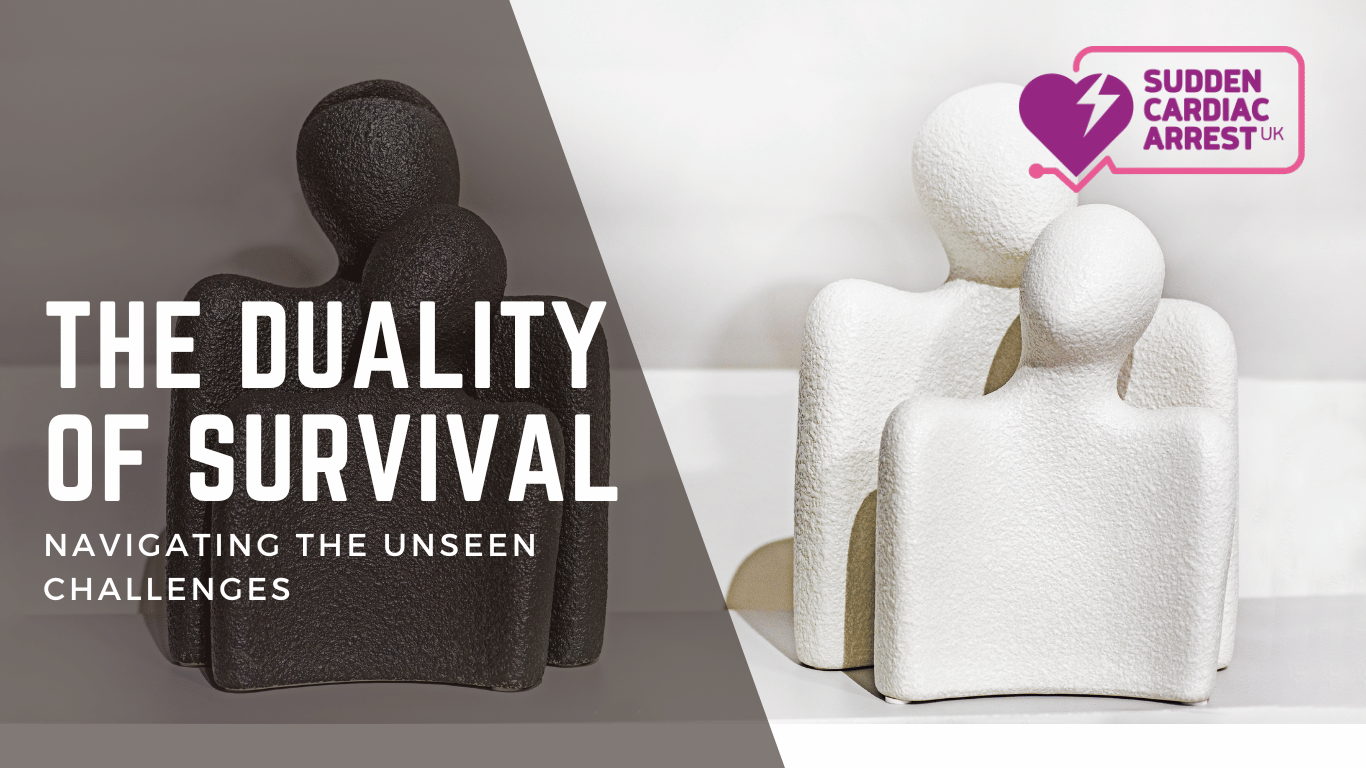Cardiac arrest is a harrowing and life-changing experience, one that no one should have to endure. Yet, for those who defy the odds and survive, the journey ahead can be just as daunting as the initial ordeal. A groundbreaking study, published in the Journal of Clinical Nursing in 2018, has shed remarkable light on the profound yet often misunderstood experiences of critical illness survivors, providing invaluable insights for cardiac arrest survivors navigating the uncharted waters of life after resuscitation.
The Dualistic Worlds of Survivors and Families

The study, led by a team of nursing researchers, employed a constructivist grounded theory approach to explore the critical illness trajectory from both patient and family perspectives. What emerged was a striking revelation: survivors and their loved ones often inhabit vastly different realities, a phenomenon the researchers aptly termed “dualistic worlds.“
For many survivors, the critical care experience was marked by a profound sense of disconnection from reality. Vivid, hallucinatory dreams and nightmarish delusions became the norm, creating a liminal space between life and death. As one survivor poignantly described,
“I wasn’t here, but I was.”
SCA Survivor
This stark disconnect between the survivor’s internal experience and the external world, as perceived by family members, can be a significant barrier to understanding and recovery.
Family members, on the other hand, were acutely aware of the gravity of the situation, bearing witness to the physical and emotional trauma unfolding before them. They lived the experience in a very real and visceral manner, while their loved one remained largely oblivious. This dissonance in perspectives can lead to a profound sense of isolation, as survivors and their families struggle to reconcile their vastly different experiences.
Navigating the Uncharted Terrain of Recovery

The study also illuminated the profound impact of critical illness on the physical, cognitive, and psychological well-being of survivors. The researchers found that survivors often faced a daunting array of challenges, from severe muscle wasting and profound fatigue to memory gaps and cognitive deficits. These sequelae can significantly impede the survivors’ ability to reclaim their pre-illness identity and navigate the journey towards a “new normal.”
For cardiac arrest survivors, the road to recovery may be particularly arduous. The unique physiological and neurological consequences of cardiac arrest, such as anoxic brain injury and cardiovascular complications, can exacerbate the challenges faced by critical illness survivors. Survivors may find themselves grappling with changes in physical capabilities, cognitive function, and even personality – a jarring reality that can leave them feeling disconnected from their former selves.
Rebuilding the Bridges of Understanding

One of the most striking findings of the study was the importance of “sense-making” in the recovery process. Both survivors and their families strived to make sense of the critical illness experience, seeking to reconcile the disparate realities they had endured. Access to information and the opportunity to share their stories emerged as crucial factors in this endeavour.
For cardiac arrest survivors, the need for open and honest communication with healthcare providers, as well as support from family and peers, cannot be overstated. Engaging in discussions about the physiological and psychological aspects of their experience, and receiving guidance on navigating the recovery process, can be instrumental in bridging the divide between survivors and their loved ones.
Moreover, the study highlighted the value of follow-up care and rehabilitation programs specifically tailored to the needs of critical illness survivors. Such initiatives, which are sadly lacking in many healthcare systems, could prove invaluable for cardiac arrest survivors as they work to regain their physical and cognitive function, as well as their sense of identity and well-being.
Forging a New Path: The Resilience of Survivors

Amidst the challenges and disruptions of critical illness, the study also revealed the remarkable resilience and adaptability of survivors. As they grappled with the loss of their former selves and the uncertainty of the future, many survivors embarked on a journey of self-discovery, finding ways to redefine their identities and forge a new path forward.
For cardiac arrest survivors, this process of rebuilding and reinvention can be particularly poignant. The near-death experience, coupled with the profound physical and cognitive changes, can catalyze a profound shift in perspective. Survivors may find themselves re-evaluating their priorities, embracing a newfound appreciation for life, and seeking to create a “new normal” that aligns with their evolving needs and values.
This resilience, however, is not without its struggles. The study’s findings underscore the importance of providing emotional support and resources to cardiac arrest survivors, empowering them to navigate the complex terrain of recovery with compassion and self-understanding.
Charting a Course for the Future

The insights gleaned from this groundbreaking study offer a profound and invaluable roadmap for cardiac arrest survivors and their loved ones. By acknowledging the dualistic worlds that can exist between survivors and their families, healthcare providers can work to bridge the gap, fostering open and empathetic communication that facilitates mutual understanding and support.
Moreover, the study’s recommendations for comprehensive follow-up care and rehabilitation programs tailored to the unique needs of critical illness survivors have the potential to transform the landscape of post-cardiac arrest recovery. By addressing the physical, cognitive, and psychological sequelae of cardiac arrest, these initiatives can empower survivors to reclaim their lives and forge a path towards a fulfilling and rewarding future.
As cardiac arrest survivors navigate the uncharted waters of life after resuscitation, they can draw strength from the resilience and adaptability demonstrated by their peers. By sharing their stories, seeking support, and embracing the opportunity to redefine their identities, survivors can not only heal themselves but also inspire and guide others who have faced similar challenges.
In the end, the journey of cardiac arrest survival is not one of simple return to the past, but rather a transformative process of rebuilding, reinvention, and the creation of a “new normal.” By embracing this reality and advocating for the resources and support that survivors need, we can ensure that no one faces this challenge alone.

After our first meet-up in February 2015, I realised I was not alone. It was the first time since my cardiac arrest the previous year that I had spoken face-to-face with someone who had experienced what I had. This was also true for my wife, who also happened to be my lifesaver. From that meet-up, the idea of SCA UK was born. Since then, we have achieved a considerable amount, primarily providing information, resources and support to others in a similar situation but also raising the profile of survivorship and the need for better post-discharge care. We are starting to get traction in this, and with the formation of the charity, I genuinely believe we have a bright future ahead and will make a significant difference in the lives of many who join our ranks.

